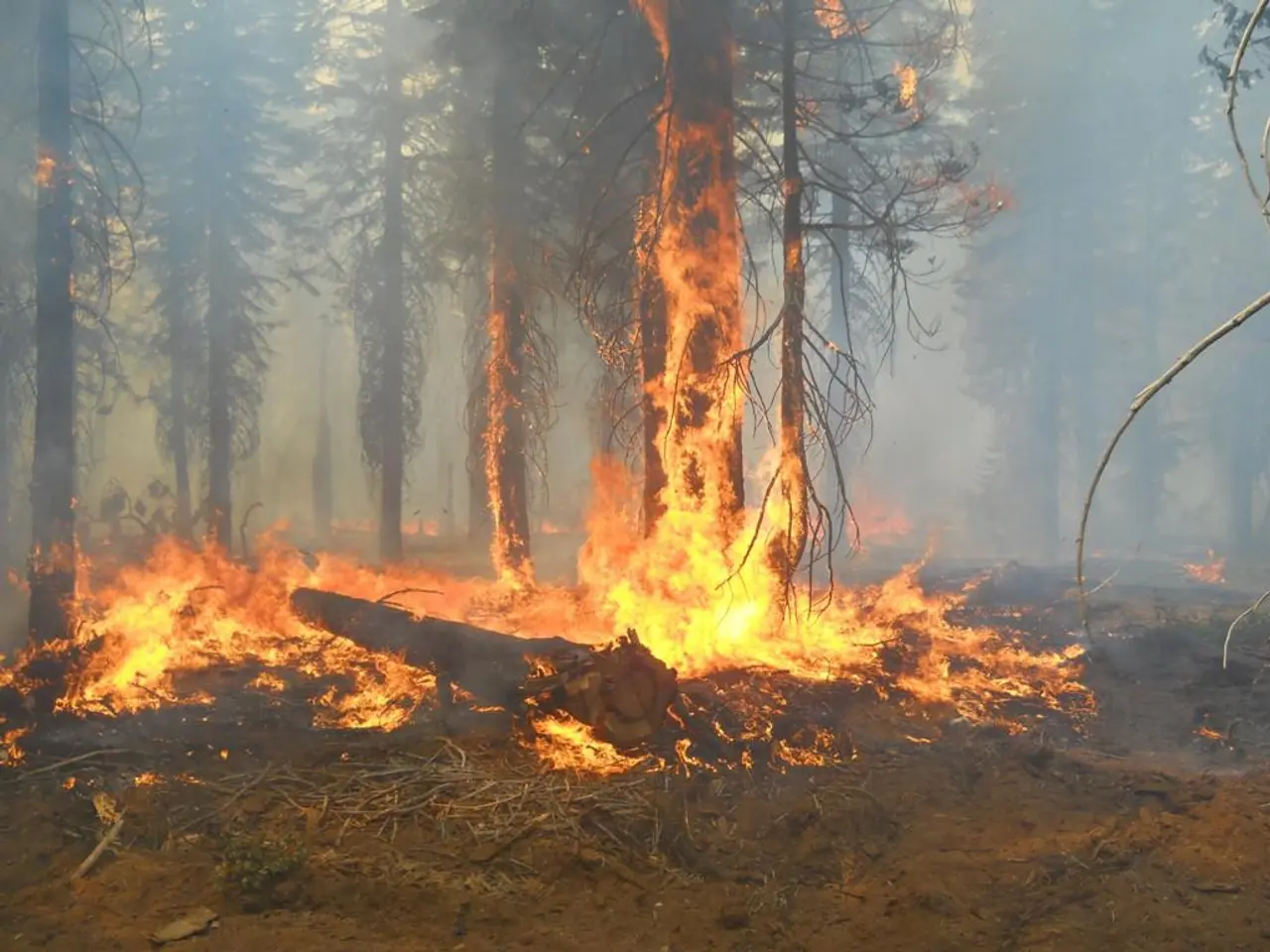Firefighters deployed from Romania head towards Greece to assist in extinguishing wildfire emergencies
In a bid to support the Greek authorities in enhancing their response capacity to forest fires, a team of 40 Romanian firefighters and eight fire trucks departed for Greece on July 30, 2020. This mission is part of a larger EU program aimed at proactive landscape management and restoration to prevent megafires.
The program, funded by the European Union, is a support measure for communities affected by previous years' devastating forest fires. The departure from Romania marks the beginning of Romania's participation in the Directorate-General for European Civil Protection and Humanitarian Aid Operations (DG ECHO) program, which will run from August 1 to September 15, 2020.
This year's program also involves teams from Austria, the Czech Republic, France, the Republic of Moldova, and Bulgaria in Greece. Other teams of 40 firefighters will replace the initial team on August 16 and August 31, 2020.
The EU policy for the prevention and containment of forest fires in southern Europe emphasizes a shift from reactive firefighting to proactive, integrated wildfire prevention. This includes ecosystem restoration, nature-based forest management, and community involvement to reduce wildfire risk. The policy prioritizes protecting and restoring natural forests, wetlands, and grasslands that act as natural firebreaks, and replacing fire-prone exotic species with native species better adapted to fire resilience.
The EU also monitors the wildfire situation closely through the European Forest Fires Information System (EFFIS), which tracks fire data and fire danger forecasts continuously. This approach is part of a new EU-wide strategy responding to a dramatic increase in wildfire frequency and intensity, particularly in southern Europe, where millions of hectares have burned recently.
The aim of the program is to reduce response time to forest fires and improve interoperability between the participating members. The program this year involves southern European nations most affected by wildfires, including Portugal, Spain, France, Italy, Greece, and countries in the Balkans. These countries actively implement the EU wildfire prevention and management measures, supported by EU funding and cooperation. The European Commission also issues warnings and coordinates resources during peak wildfire seasons to help these countries combat fires more effectively.
The General Inspectorate for Emergency Situations made the announcement, and the photo source for this article is IGSU on Facebook. You can find the full article on our website.
[1] European Commission. (2020). EU policy for the prevention and containment of forest fires in southern Europe. Retrieved from https://ec.europa.eu/civilprotection/chapter/forest-fires_en
[2] European Forest Fires Information System (EFFIS). (n.d.). Retrieved from https://effis.jrc.ec.europa.eu/
[3] European Commission. (2020). EU wildfire prevention and management measures. Retrieved from https://ec.europa.eu/civilprotection/chapter/wildfires_en
[4] European Commission. (2020). EU support for countries affected by wildfires. Retrieved from https://ec.europa.eu/civilprotection/chapter/support-countries-affected-by-wildfires_en
Sports teams can collaborate with the European Commission in implementing proactive wildfire prevention, as demonstrated by the firefighting teams from various EU countries supporting Greece. The EU's wildfire prevention and management measures extend beyond emergency response, encompassing ecosystem restoration and native species rehabilitation that can act as natural firebreaks, similar to how sports teams refine their strategies for optimal performance.






